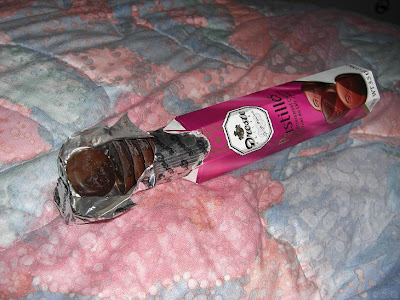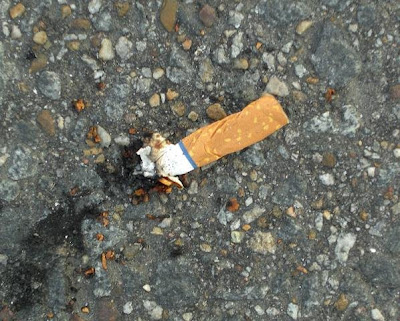I don't know if this is an urban hoax circulating the internet propagated by a savvy Costco marketer, or by a spurned and angry lover of one Sharon L. Davis. I don't know if Ms. Davis actually exists or if she wrote the following e-mail that was forwarded to me. My guess is that even if Ms. Davis is being punked, the facts listed are probably true or at least, food for thought and further research. I'm just the messenger, the conduit.
WAY TO GO COSTCO
This is worth reading. Be sure to read to the end. You will be amazed. Let's hear it for Costco!! (This is just mind-boggling!) Make sure you read all the way past the list of the drugs. The woman that signed below is a Budget Analyst out of federal Washington , DC offices.
Did you ever wonder how much it costs a drug company for the active
ingredient in prescription medications? Some people think it must cost a lot, since many drugs sell for more than $2.00 per tablet. We did a search of offshore chemical synthesizers that supply the active ingredients found in drugs approved by the FDA. As we have revealed in past issues of Life Extension, a significant percentage of drugs sold in the United States contain active ingredients made in other countries. In our independent investigation of how much profit drug companies really make, we obtained the actual price of active ingredients used in some of the most popular drugs sold in America
The data below speaks for itself.
Celebrex: 100 mg
Consumer price (100 tablets): $130.27
Cost of general active ingredients: $0.60
Percent markup: 21,712%
Claritin: 10 mg
Consumer Price (100 tablets): $215.17
Cost of general active ingredients: $0.71
Percent markup: 30,306%
Keflex: 250 mg
Consumer Price (100 tablets): $157.39
Cost of general active ingredients: $1.88
Percent markup: 8,372%
Lipitor: 20 mg
Consumer Price (100 tablets): $272.37
Cost of general active ingredients: $5.80
Percent markup: 4,696%
Norvasc: 10 mg
Consumer price (100 tablets): $188.29
Cost of general active ingredients: $0.14
Percent markup: 134,493%
Paxil: 20 mg
Consumer price (100 tablets): $220.27
Cost of general active ingredients: $7.60
Percent markup: 2,898%
Prevacid: 30 mg
Consumer price (100 tablets): $44.77
Cost of general active ingredients: $1.01
Percent markup: 34,136%
Prilosec : 20 mg
Consumer price (100 tablets): $360.97
Cost of general active ingredients $0.52
Percent markup: 69,417%
Prozac: 20 mg
Consumer price (100 tablets) : $247.47
Cost of general active ingredients: $0.11
Percent markup: 224,973%
Tenormin: 50 mg
Consumer price (100 tablets): $104.47
Cost of general active ingredients: $0.13
Percent markup: 80,362%
Vasotec: 10 mg
Consumer price (100 tablets): $102.37
Cost of general active ingredients: $0.20
Percent markup: 5 1,185%
Xanax: 1 mg
Consumer price (100 tablets) : $136.79
Cost of general active ingredients: $0.024
Percent markup: 569,958%
Zestril: 20 mg
Consumer price (100 tablets) $89.89
Cost of general active ingredients $3.20
Percent markup: 2,809
Zithromax: 600 mg
Consumer price (100 tablets): $1,482.19
Cost of general active ingredients: $18.78
Percent markup: 7,892%
Zocor: 40 mg
Consumer price (100 tablets): $350.27
Cost of general active ingredients: $8.63
Percent markup: 4,059%
Zoloft: 50 mg&nbs p;
Consumer price: $206.87
Cost of general active ingredients: $1.75
Percent markup: 11,821%
Since the cost of prescription drugs is so outrageous, I thought everyone should know about this. Please read the following and pass it on.
It pays to shop around. This helps to solve the mystery as to why they can afford to put a Walgreen's on every corner. On Monday night, Steve Wilson, an investigative reporter for Channel 7 News in Detroit, did a story on generic drug price gouging by pharmacies. He found in his investigation, that some of these generic drugs were marked up as much as 3,000% or more.
Yes, that's not a typo.....three thousand percent! So often, we blame the drug companies for the high cost of drugs, and usually rightfully so. But in this case, the fault clearly lies with the pharmacies themselves. For example, if you had to buy a prescription drug, and bought the name brand, you might pay $100 for 100 pills.
The pharmacist might tell you that if you get the generic equivalent, they would only cost $80, making you think you are 'saving' $20. What the pharmacist is not telling you is that those 100 generic pills may have only cost him $10!
At the end of the report, one of the anchors asked Mr. Wilson whether, or not there were any pharmacies that did not adhere to this practice, and he said that Costco consistently charged little over their cost for the generic drugs.
I went to the Costco site, where you can look up any drug, and get its online price. It says that the in-store prices are consistent with the online prices. I was appalled. Just to give you one example from my own experience, I had to use the drug, Compazine, which helps prevent nausea in chemo patients & bsp; I used the generic equivalent, which cost $54.99 for 60 pills at CVS. I
checked the price at Costco, and I could have bought 100 pills for $19.89.
For 145 of my pain pills, I paid $72.57. I could have got 150 at Costco for $28.08.
I would like to mention, that although Costco is a 'membership' type store, you do NOT have to be a member to buy prescriptions there, as it is a federally regulated substance. You just tell them at the door that you wish to use the pharmacy, and they will let you in. (this is true) I went there this past Thursday and asked them. I am asking each of you to please help me by copying this letter, and passing it into your own e-mail, and send it to everyone you know with an e-mail address.
Sharon L. Davis
Budget Analyst
U.S. Department of Commerce
Room 6839
Office Ph: 202-482-4458
Office Fax: 202-482-5480
E-mail Address: sdavis@doc.gov
 If you're in D.C. and have the time and the money, quickly, go online or call the
If you're in D.C. and have the time and the money, quickly, go online or call the 



 Jeri Ann wrote: I have eaten so much chicken today feathers have sprouted between my arthritic little fingers.
Jeri Ann wrote: I have eaten so much chicken today feathers have sprouted between my arthritic little fingers.




